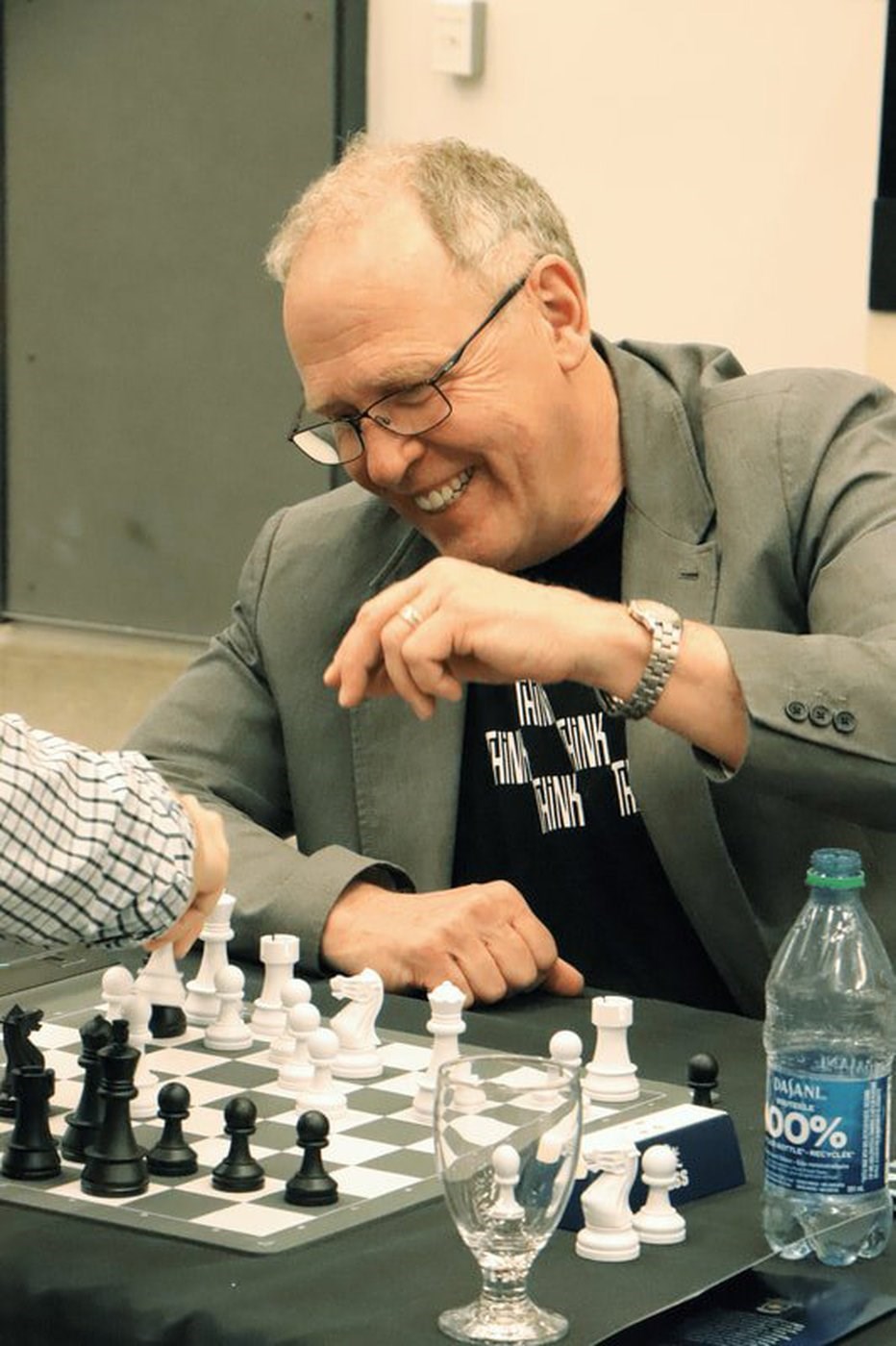EDMONTON — Every Friday in a southern Alberta classroom, youth are learning how to keep their troubles in check.
Hunched over chess boards at the University of Lethbridge, teens and young adults who are at-risk or have been convicted of various crimes are taught to think, think again, then think some more as they move their pawns, kings, queens and rooks across 64 black and white spaces.
The founder of Chess for Life says the program helps them learn how to accomplish short-term goals, like completing community service hours, following a curfew and staying out of trouble.
Some participants have gone on to secure full-time jobs, enrol in post-secondary education and rekindle broken relationships.
"That's because there is a lot of opportunity to think about chess in ways that go beyond the board itself," says Lance Grigg, who wants to expand the program to correctional facilities across Alberta.
"It's just transformative in many ways."
Grigg, who also teaches in the University of Lethbridge's faculty of education, says he got the idea to create Chess for Life in 2016.
At the time, provincial court Justice Derek Redman had made headlines for sentencing a 12-year-old boy, who was found guilty of threatening another youth with a knife, to practise dribbling and shooting a basketball for at least five hours a week.
When the boy said he didn't own a basketball, Redman instructed a court sheriff to get one for the offender before he was released.
Soon after, Grigg bumped into the judge at a local gym and convinced him to consider sentencing young offenders to playing chess.
In 2018, Alberta Justice approved a request from Grigg and Redman to make Chess for Life an official referral program for probation officers to recommend for young offenders sentenced to community service.
Volunteer mentors in the program also go to the Lethbridge Correctional Centre and the Edmonton Youth Offender Centre to teach chess to those in the system. Other facilities are inquiring about the program, Grigg adds.
Seventy-five students have graduated.
"It’s helping me be able to process in conflict situations — like, slowly," one participant is quoted as saying in a research paper on the program. The youth can't be identified under the Youth Criminal Justice Act.
Another says outside problems fade away for the hour at the chess board, and it helps to "relate to some kids that I think can relate to me."
A third youth says the program brings moments of peace while dealing with a difficulties at home.
"When I go home, my parents are --- how do I say? — rebuttal-ish … I have to deal with arguments."
Grigg says he and other donors are currently funding the program and he hopes Alberta Justice will pitch in.
A ministry spokesperson declined to comment on the program due to an upcoming provincial byelection in Lethbridge.
Grigg says the low program costs cover pizza, juice, chips and checkered socks that the youth get once they're brought to the classroom by a probation officer.
There are also chess boards for them to take home.
Volunteers with the program take breaks in between games to teach participants how to play or strategize.
"Along with learning how to think, think, think, move, which is a slogan for our program, they also learn about space, time, harmony," Grigg says.
"The pieces need to work in harmony with one another to achieve an important goal," he says, adding that teaches the importance of community.
They're also taught to use their time wisely, because a game of chess doesn't last forever, and neither does life.
He says strategically using spaces on the board is also an important lesson.
"In chess, you can't take a move back, and sometimes we would love to take moves back over the board and off the board," he says.
"We talk about using your space well, your office space, your car space, your head space."
With all those lessons combined, he says, "chess is a no-brainer."
This report by The Canadian Press was first published Dec. 8, 2024.
Fakiha Baig, The Canadian Press


